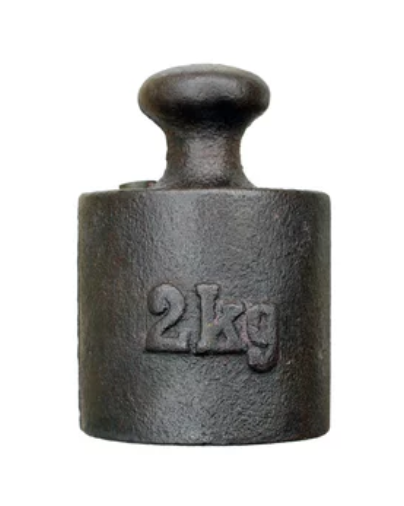When it comes to measuring weight, two units often come into focus: pounds (lbs) and kilograms (kg). While they both measure the same quantity—weight or mass—they belong to entirely different measurement systems. Understanding the difference between pounds and kilograms is essential not only for academic purposes but also for navigating the practicalities of global travel, fitness, and everyday life.
In this blog post, we’ll explore the origins, usage, and key differences between pounds and kilograms, as well as provide tips for converting between the two.
Check out our Pounds Converter (lb)
What Are Pounds (lbs)?
Pounds are part of the imperial system of measurement, commonly used in the United States and a few other countries. The unit “pound” originates from the Roman word libra, which referred to a balance or scale. This is why the abbreviation for pounds is “lb.”
A pound is equivalent to:
- 16 ounces
- Approximately 0.453592 kilograms
Where Are Pounds Used?
- United States: For measuring body weight, food, and other goods.
- United Kingdom (historically): Although the UK officially uses the metric system, pounds are still widely recognized for personal weight measurements.
What Are Kilograms (kg)?
Kilograms belong to the metric system, the globally accepted standard for scientific and everyday measurements. Introduced during the French Revolution, the metric system aimed to provide a universal and logical framework for measurement.
A kilogram is the base unit of mass in the International System of Units (SI) and is defined as:
- 1,000 grams
- Approximately 2.20462 pounds
Where Are Kilograms Used?
- Globally: Almost every country outside the United States uses kilograms for measuring weight.
- Science and Medicine: Even in the U.S., scientific and medical fields adopt kilograms due to their consistency in the metric system.
Key Differences Between Pounds and Kilograms
| Aspect | Pounds (lbs) | Kilograms (kg) |
|---|---|---|
| Measurement System | Imperial | Metric |
| Abbreviation | lb | kg |
| Where Used | Primarily U.S. | Global |
| Conversion Factor | 1 lb ≈ 0.453592 kg | 1 kg ≈ 2.20462 lbs |
| Ease of Use | Not base-10 (requires fractions) | Base-10 (easier for calculations) |
Why Is It Important to Understand the Difference?
- Travel and International Communication: Travelers often encounter weight measurements in kilograms when visiting countries outside the U.S. Knowing the conversion can help avoid confusion when weighing luggage or reading nutrition labels.
- Fitness and Health Goals: Fitness equipment, such as weights and scales, may use either pounds or kilograms depending on where they are manufactured. Understanding the units ensures accurate tracking of weight and progress.
- Trade and Commerce: Many industries operate internationally, requiring conversions between pounds and kilograms to ensure consistency and avoid errors.
- Scientific Accuracy: The metric system, including kilograms, is the standard in scientific and medical fields, making it essential for global collaboration.
How to Convert Between Pounds and Kilograms
Converting between pounds and kilograms is straightforward with the right formulas:
-
Pounds to Kilograms: Multiply the weight in pounds by
0.453592.
Example:150 lbs × 0.453592 = 68.04 kg -
Kilograms to Pounds: Multiply the weight in kilograms by
2.20462.
Example:70 kg × 2.20462 = 154.32 lbs
For quick conversions, use online calculators or printable conversion charts.
Real-Life Scenarios for Pounds and Kilograms
- Airline Luggage: Airlines often list luggage weight limits in kilograms (e.g., 23 kg per bag). Understanding how to convert between units ensures your bag complies with weight restrictions.
- Buying Produce: At international markets, fruits and vegetables might be priced per kilogram. If you’re accustomed to pounds, converting can help you understand the pricing.
- Fitness Equipment: Gym weights are frequently labeled in kilograms in Europe and other parts of the world. A dumbbell weighing 10 kg, for instance, is equivalent to approximately 22 lbs.
- Medical Reports: Doctors worldwide may record your body weight in kilograms. Knowing how this relates to pounds can help you interpret your health metrics.
Tips for Mastering Pounds and Kilograms
-
Memorize Key Conversions:
Remember a few common conversions:
- 1 lb ≈ 0.45 kg
- 10 lbs ≈ 4.54 kg
- 1 kg ≈ 2.2 lbs
- 10 kg ≈ 22 lbs
- Use Conversion Tools: Apps, websites, and calculators simplify conversions for everyday use.
- Practice with Word Problems: Apply conversions to real-world scenarios, such as calculating the weight of luggage or scaling recipes.
- Keep a Chart Handy: Printable conversion charts are a quick reference tool, especially for students or professionals working with weights.
Try out our Free Math and English Worksheet Generators
The Future of Weight Measurement
As globalization continues to grow, there’s a push for universal adoption of the metric system, including kilograms, to standardize measurements worldwide. While this transition may take time in the United States, understanding both pounds and kilograms ensures you’re prepared for any context.
Pounds and kilograms are two sides of the same coin, both measuring weight but belonging to different systems. Understanding the difference between these units is not just an academic exercise; it’s a practical skill that simplifies travel, trade, fitness, and even daily shopping.
By learning how to convert between pounds and kilograms and understanding their respective contexts, you can confidently navigate situations that require weight measurement, whether you’re at the gym, in the kitchen, or traveling abroad.
